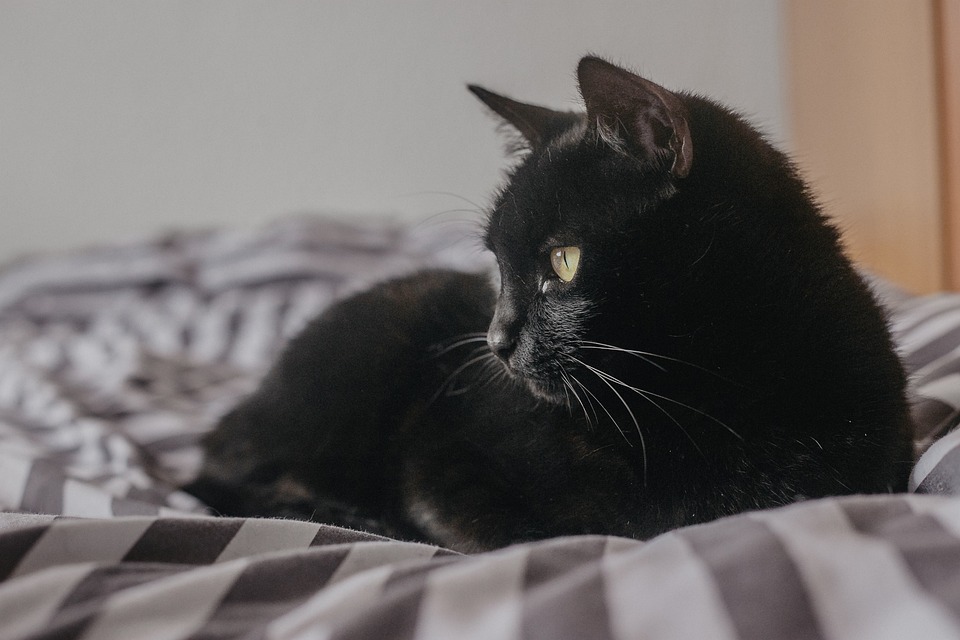Title: Recognizing and Addressing Signs of Aging in Senior Cats
Introduction:
As our feline companions age, their needs change, and they may require extra care and attention. Recognizing the signs of aging in senior cats is crucial to ensure their well-being and address any potential health issues promptly. In this article, we will explore common signs of aging in cats and provide valuable tips on how to address them. Additionally, we have compiled a list of frequently asked questions to help cat owners navigate this stage of their pet’s life with confidence.
I. Signs of Aging in Senior Cats:
1. Reduced Activity Levels: Understanding the natural decline in mobility and energy levels.
As cats age, they may become less active and spend more time sleeping or resting. It is important to differentiate between normal aging and signs of illness or pain.
2. Changes in Appetite: Identifying altered eating habits and weight management.
Senior cats may experience a decrease in appetite or changes in their eating habits. Monitoring their weight and adjusting their diet accordingly can help maintain a healthy weight.
3. Dental Issues: Dental care tips to overcome dental diseases and discomfort.
Senior cats are prone to dental issues such as gum disease and tooth decay. Regular dental care, including toothbrushing and professional cleanings, can prevent pain and discomfort.
4. Vision and Hearing Loss: Recognizing the signs and adjusting the environment for your cat.
Cats may experience vision and hearing loss as they age. Providing a safe and familiar environment and using verbal cues can help them navigate their surroundings.
5. Coat and Skin Changes: Dealing with dry skin, hair loss, and matting.
Senior cats may develop dry skin, experience hair loss, or develop matted fur. Regular grooming and providing a balanced diet can help maintain their coat’s health.
6. Urinary and Digestive Problems: Addressing common issues like incontinence and constipation.
Senior cats are more prone to urinary and digestive problems such as incontinence and constipation. Proper hydration, a balanced diet, and regular litter box maintenance can help prevent these issues.
II. Addressing Aging-Related Challenges:
1. Regular Veterinary Check-ups: The importance of routine visits in monitoring your cat’s health.
Regular veterinary check-ups are crucial to detect and address any health issues early on. Senior cats should have check-ups at least twice a year.
2. Proper Nutrition: Choosing a balanced diet suitable for senior cats’ changing needs.
Senior cats require a diet tailored to their changing nutritional needs. Consult with your veterinarian to determine the best diet for your cat.
3. Exercise and Environmental Enrichment: Stimulating your cat’s mind and body through play and activities.
Regular exercise and environmental enrichment can help keep senior cats mentally and physically active. Interactive toys, scratching posts, and puzzle feeders are great options.
4. Joint Health and Mobility: Tips to alleviate arthritis and promote comfort.
Arthritis is common in senior cats and can cause discomfort and decreased mobility. Providing soft bedding, ramps or steps, and joint supplements can help alleviate their pain.
5. Dental Care: Brushing techniques, dental treats, and regular professional cleanings.
Regular dental care is essential for senior cats. Brushing their teeth, providing dental treats, and scheduling professional cleanings can help maintain their oral health.
6. Grooming: Assisting your cat with grooming needs and maintaining a healthy coat.
Senior cats may have difficulty grooming themselves. Assisting them with regular grooming, including brushing and trimming their nails, can help prevent matting and skin issues.
III. Frequently Asked Questions (FAQs):
1. How can I determine if my cat is considered a senior?
2. Is it normal for senior cats to sleep more?
3. Should I change my cat’s diet as they age?
4. How often should senior cats visit the veterinarian?
5. Are there any supplements that can benefit aging cats?
6. What signs should I look for to detect urinary problems in my senior cat?
7. How can I help my senior cat with joint pain?
8. Are there any specific grooming techniques for senior cats?
9. How can I ensure my senior cat remains mentally stimulated?
10. Is it common for senior cats to experience weight loss?
Conclusion:
By recognizing the signs of aging in senior cats and addressing their changing needs, we can provide them with a comfortable and fulfilling life. Regular veterinary care, balanced nutrition, environmental enrichment, and proper grooming are essential aspects of maintaining their overall well-being. Remember, observing any unusual behavior or health issues in your senior cat warrants immediate attention from a veterinarian. With proper care and attention, we can ensure our aging feline companions live their golden years to the fullest.








